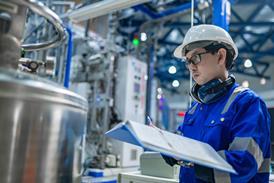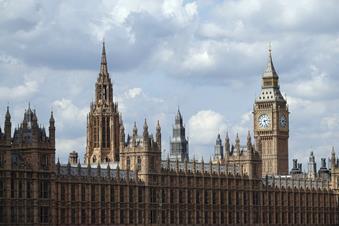Reacting to today’s Budget Statement by the Chancellor, the chemical industry – one of the UK’s biggest manufacturing exporters – welcomes some of today’s commitments, but there remain massive and urgent challenges if it is to truly compete on a global stage.
Steve Elliott, Chief Executive of the Chemical Industries Association said “chemical business leaders will feel this is better than first feared, especially with confirmation of full expensing of qualifying capital investment in year one. This will improve cash-flow for companies investing in the UK. In addition, it is good to see the commitment to new investment zones which are largely in parts of the country where the chemical industry is located; the extension of the climate change agreement scheme for 2 years to 2027; research and development support for small and medium sized businesses and the £20 billion for carbon capture and storage investment – although this still leaves the UK lagging behind some key competitor countries, notably the US, which is already having an effect on investment decisions”.
He added “Companies are already taking those decisions on future investments – especially in the green technology arena – so we would urge the Chancellor to accelerate any UK response to America’s Inflation Reduction Act. Autumn feels a long way away in the current climate”.
ENDS
For more information or to interview Steve Elliott, please get in touch - Simon Marsh at MarshsS@cia.org.uk or 07951 389197 or Diana Tamayo at tamayod.cia.org.uk 07885 831615.
-
Businesses who make chemical products and solutions are integral to something like 96% of all manufactured goods. Whether it is ingredients for food and medicines; paints and coatings for cars and planes or materials for mobile phones and electric vehicle batteries, the chemical industry is truly the “industry of industries” – also playing a critical role in the nation’s response to Covid-19 through its supply of hand sanitiser, PPE and vaccine ingredients.
-
Chemical businesses are located throughout the UK, with many of them clustered together in the North East of England, North West of England and Central Scotland. These factories and laboratories, operated by a highly trained and skilled workforce, make a significant contribution towards the UK’s productivity performance – double that of any other manufacturing industry and triple that of any part of the UK economy.
-
Nearly half a million people are employed in the sector or have roles that are dependent on the sector. Chemical workers typically earn around 35% more than other manufacturing industries and almost 50% more than the average worker.
-
From Runcorn to the Humber Bank; from Teesside to Grangemouth, chemical businesses and their employees right across the country are essential to the Government’s levelling-up agenda.
-
We are one of the country’s biggest manufacturing exporters, sending goods to the value of more than £54 billion to other countries. The EU represents our most important market, but we continue to work closely with Government to inform and secure UK trade deals with other key chemical markets such as Japan and the USA.





















